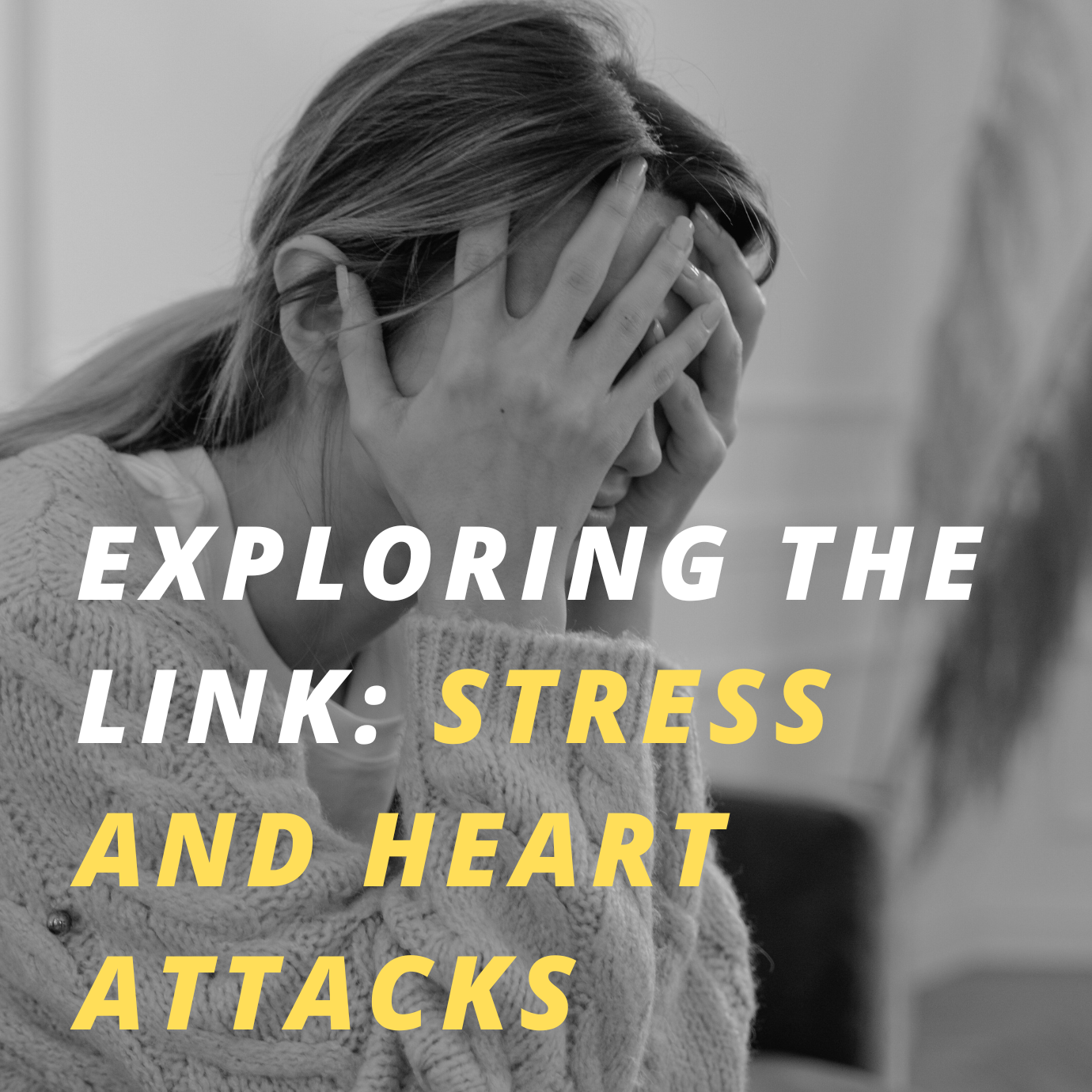Stress is an inherent part of modern life, but its impact on our health, particularly on the heart, should not be underestimated. Numerous studies have established a significant connection between chronic stress and an increased risk of heart attacks. Understanding this link is crucial to safeguarding our cardiovascular health. Let’s explore how stress affects the heart and discover effective stress management techniques.
How Stress Impacts the Heart: When you experience stress, your body initiates a “fight or flight” response, releasing stress hormones like adrenaline and cortisol. These hormones elevate your heart rate, constrict blood vessels, and increase blood pressure, preparing your body to respond to perceived threats. While this response is beneficial in short bursts, prolonged exposure to stress can have adverse effects on the heart and cardiovascular system.
Chronic stress can lead to:
- High Blood Pressure: Elevated blood pressure, resulting from prolonged stress, puts extra strain on the heart and arteries, increasing the risk of heart disease and heart attacks.
- Inflammation: Chronic stress triggers inflammation in the body, including the arteries, which can contribute to the development of atherosclerosis (the buildup of plaque in the arteries).
- Unhealthy Coping Behaviors: People under stress may resort to unhealthy coping mechanisms like overeating, smoking, or excessive alcohol consumption, further raising the risk of heart problems.
- Changes in Heart Rhythm: Stress can disrupt the heart’s electrical signals, leading to arrhythmias, where the heart beats irregularly.
Effective Stress Management Techniques: Managing stress is essential for maintaining heart health and overall well-being. Here are some proven stress management techniques to consider:
- Exercise: Regular physical activity is an excellent way to reduce stress, release endorphins (natural mood boosters), and promote heart health.
- Meditation and Mindfulness: Practicing meditation and mindfulness techniques can help calm the mind, reduce stress hormones, and improve overall emotional well-being.
- Deep Breathing Exercises: Simple breathing exercises can activate the body’s relaxation response, counteracting the effects of stress.
- Social Support: Stay connected with friends, family, and support groups. Sharing feelings and experiences can alleviate stress and provide a sense of belonging.
- Time Management: Organize your tasks, set realistic goals, and prioritize activities to reduce feelings of overwhelm.
- Engage in Hobbies: Pursuing hobbies and interests can offer a welcome distraction from stressors and provide a sense of fulfillment.
- Seek Professional Help: If stress becomes overwhelming or starts to affect your daily life, consider seeking help from a mental health professional.
- Limit Stressors: Identify stress triggers in your life and take steps to minimize or eliminate them when possible.
Remember, managing stress is not only beneficial for your heart but also for your overall health and quality of life. By incorporating these stress management techniques into your routine, you can reduce the impact of stress on your heart and enjoy a healthier, more balanced life.
